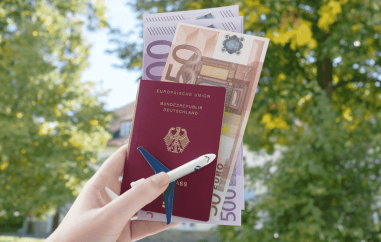Tax cheats shaking in their boots
For many years, some Germans used Swiss banks, with their strict banking secrecy, as a safe haven for some of their assets. There were many reasons, of course, but a major reason was always to evade paying taxes. On 21 September 2011, Germany and Switzerland agreed on a tax agreement between the two neighbouring countries. Many Germans have brought money to Swiss banks over the years to prevent having to pay taxes in Germany, which is a crime in Germany. With the new agreement, German citizens and legal persons will be taxed in Switzerland in the same way that they would be taxed in Germany.
The tax agreement also includes a retroactive regulation. It is planned there will be a blanket back payment of tax liabilities, but no prosecution of tax evasion. This part is especially criticised by the opposition. The tax agreement also has to be ratified by the "Bundesrat," where the CDU/CSU and FDP coalition have no majority. SPD officials insist that they won´t vote for an agreement which legalizes tax evasion. The Swiss will hold a popular vote on the issue.
In a controversial situation, SPD finance minister of North Rhine-Westphalia, Walter Borjans, declared he will continue to buy CDs with stolen data from Swiss banks for some million euros to prosecute tax evaders. The practice of buying this stolen data is strongly criticised by the Swiss Government, because the data providers committed a crime in Switzerland. The fact that some CDs were bought by German authorities is one of the reasons why Switzerland agreed to institute a tax regulation. The purchase of stolen data has also been criticised in Germany and is considered "fencing" by some people. Federal Minister of Justice, Sabine Leutheusser-Schnarrenberger (FDP), announced she wants a regulation to ban the purchase of illegal data.
By publishing the data that was purchase, many tax evaders would have to pay back the tax liabilities in addition to a fine, but would then not be prosecuted for a criminal offense. The most famous example of this is when former Post AG CEO Klaus Zumwinkel was convicted for two years prison on parole in 2008 after his data were found on a similar CD.
Although federal finance minister Wolfgang Schäuble expects an additional 10 billion euros in revenue due to this legislation, it seems unlikely that the agreement will receive the necessary political approval. For that reason, the situation will remain unresolved.















































